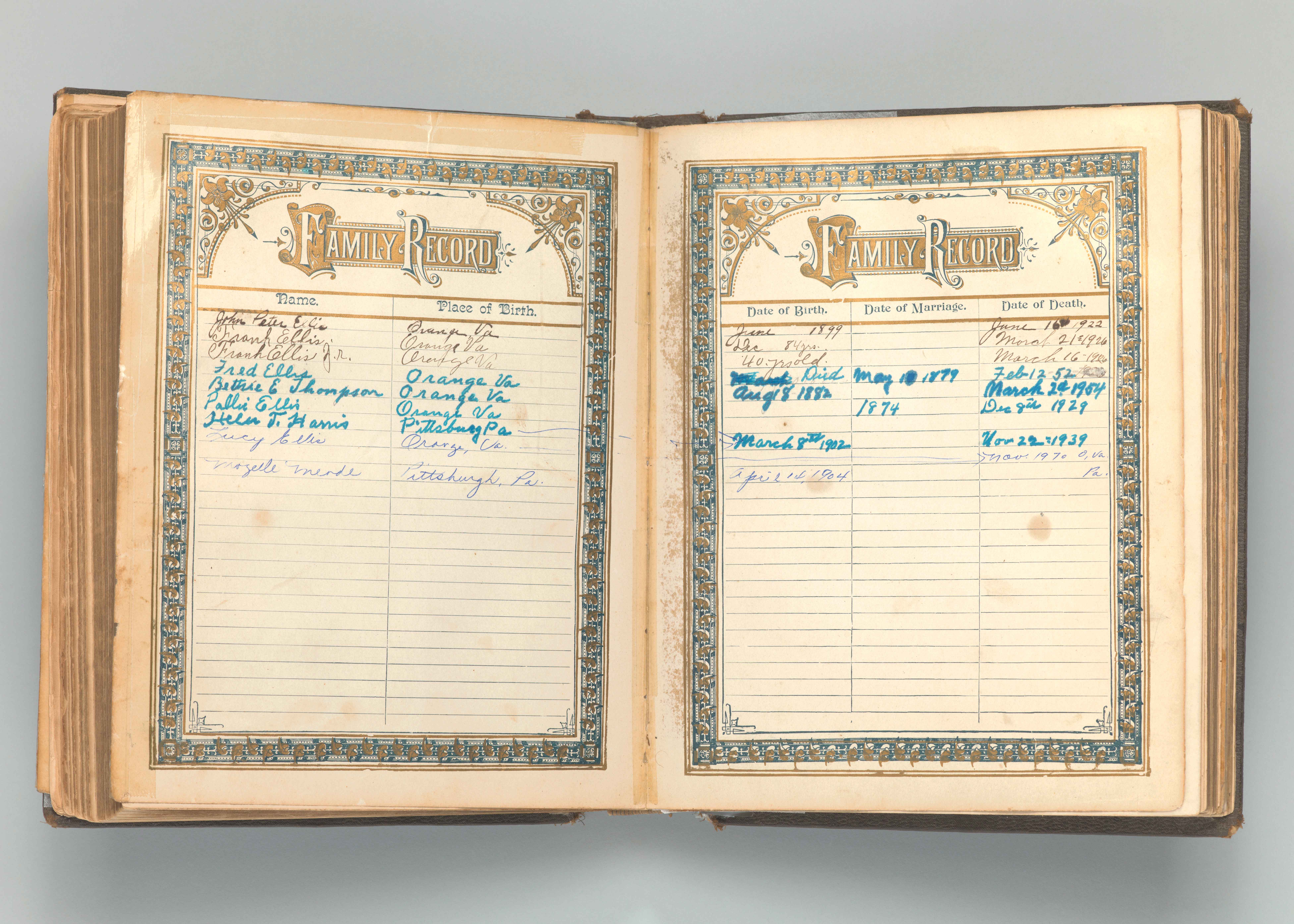This Bible kept record of one family’s history after slavery

The Holy Bible containing handwritten records for the Ellis family. Collection of the Smithsonian’s National Museum of African American History and Culture, gift of Clara Ellis Payne
This Ellis family Bible was passed down through the generations, a valuable tool in reconstructing the family’s history.
Clara Ellis Payne’s ancestors were enslaved at Montpelier, the home of President James Madison. After emancipation, her great-grandfather Squire May purchased land nearby in Orange County, Virginia, and created a family homestead.
This Bible, with items from the family homestead established by Clara Ellis Payne’s grandparents Frank and Polly Ellis in the 1870s, is now in the Smithsonian’s National Museum of African American History and Culture. It’s on display in “Make Good the Promises: Reconstruction and Its Legacies,” an exhibition that considers this important but often overlooked time in American history.
During Reconstruction—the period following the Civil War—newly freed African Americans embraced liberty by establishing families, which were foundational to their status as free people.
Slavery often broke families apart; formal marriage ceremonies were a rarity and enslaved parents had no legal rights to their children. With freedom, many African Americans tried to reunite with lost family members and to define family roles for their new circumstances. Formerly enslaved couples participated in official ceremonies to reinforce their commitment to one another or for legal purposes.
Newly freed people also set up households to keep families together. Their own homes, furnished with their own possessions, signified freedom, security and success.
